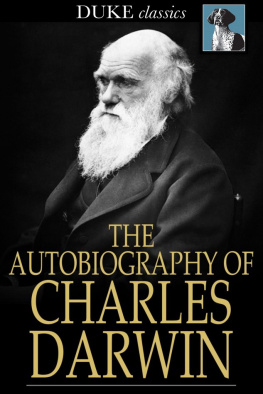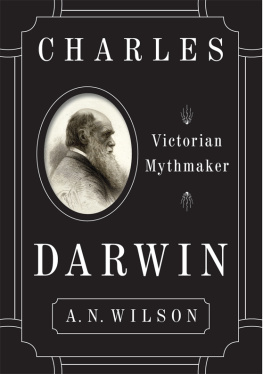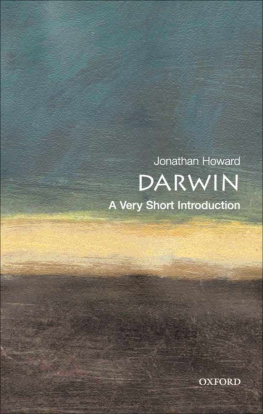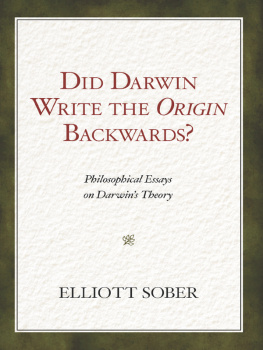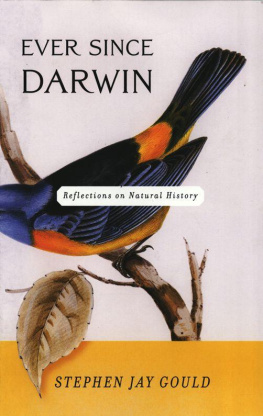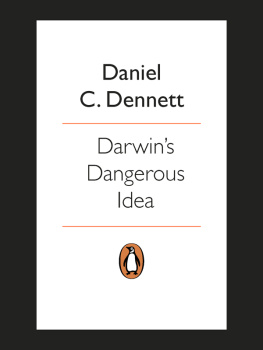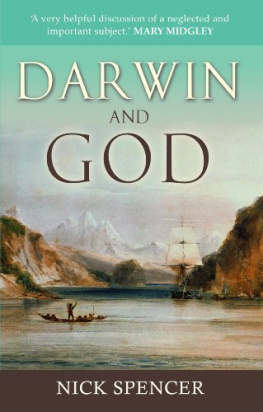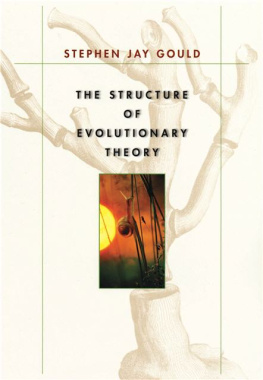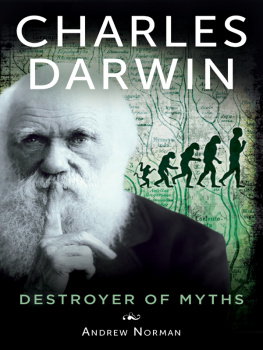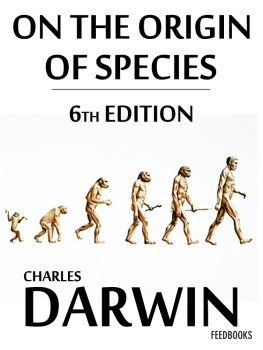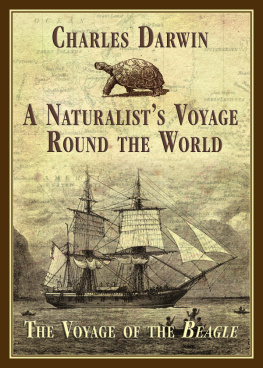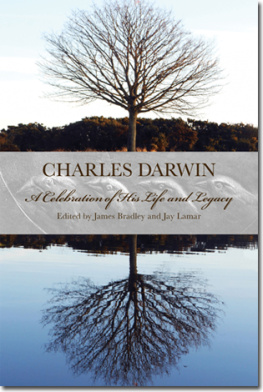THE AUTOBIOGRAPHY OF CHARLES DARWIN
FROM THE LIFE AND LETTERS OF CHARLES DARWIN
* * *
CHARLES DARWIN
Edited by
FRANCIS DARWIN
*
The Autobiography of Charles Darwin
From The Life and Letters of Charles Darwin
First published in 1887
ISBN 978-1-62011-114-7
Duke Classics
2012 Duke Classics and its licensors. All rights reserved.
While every effort has been used to ensure the accuracy and reliability of the information contained in this edition, Duke Classics does not assume liability or responsibility for any errors or omissions in this book. Duke Classics does not accept responsibility for loss suffered as a result of reliance upon the accuracy or currency of information contained in this book.
Contents
*
Note by Francis Darwin
*
My father's autobiographical recollections, given in the presentchapter, were written for his children,and written without anythought that they would ever be published. To many this may seeman impossibility; but those who knew my father will understandhow it was not only possible, but natural. The autobiographybears the heading, 'Recollections of the Development of my Mindand Character,' and end with the following note:"Aug. 3, 1876.This sketch of my life was begun about May 28th at Hopedene (Mr.Hensleigh Wedgwood's house in Surrey.), and since then I havewritten for nearly an hour on most afternoons." It will easilybe understood that, in a narrative of a personal and intimatekind written for his wife and children, passages should occurwhich must here be omitted; and I have not thought it necessaryto indicate where such omissions are made. It has been foundnecessary to make a few corrections of obvious verbal slips, butthe number of such alterations has been kept down to theminimum.
F.D.
Recollections of the Development of My Mind and Character
*
A German Editor having written to me for an account of thedevelopment of my mind and character with some sketch of myautobiography, I have thought that the attempt would amuse me,and might possibly interest my children or their children. Iknow that it would have interested me greatly to have read evenso short and dull a sketch of the mind of my grandfather, writtenby himself, and what he thought and did, and how he worked. Ihave attempted to write the following account of myself, as if Iwere a dead man in another world looking back at my own life.Nor have I found this difficult, for life is nearly over with me.I have taken no pains about my style of writing.
I was born at Shrewsbury on February 12th, 1809, and my earliestrecollection goes back only to when I was a few months over fouryears old, when we went to near Abergele for sea-bathing, and Irecollect some events and places there with some littledistinctness.
My mother died in July 1817, when I was a little over eight yearsold, and it is odd that I can remember hardly anything about herexcept her death-bed, her black velvet gown, and her curiouslyconstructed work-table. In the spring of this same year I wassent to a day-school in Shrewsbury, where I stayed a year. Ihave been told that I was much slower in learning than my youngersister Catherine, and I believe that I was in many ways a naughtyboy.
By the time I went to this day-school (Kept by Rev. G. Case,minister of the Unitarian Chapel in the High Street. Mrs. Darwinwas a Unitarian and attended Mr. Case's chapel, and my father asa little boy went there with his elder sisters. But both he andhis brother were christened and intended to belong to the Churchof England; and after his early boyhood he seems usually to havegone to church and not to Mr. Case's. It appears ("St. James'Gazette", Dec. 15, 1883) that a mural tablet has been erected tohis memory in the chapel, which is now known as the 'FreeChristian Church.') my taste for natural history, and moreespecially for collecting, was well developed. I tried to makeout the names of plants (Rev. W.A. Leighton, who was aschoolfellow of my father's at Mr. Case's school, remembers hisbringing a flower to school and saying that his mother had taughthim how by looking at the inside of the blossom the name of theplant could be discovered. Mr. Leighton goes on, "This greatlyroused my attention and curiosity, and I enquired of himrepeatedly how this could be done?"but his lesson was naturallyenough not transmissible.F.D.), and collected all sorts ofthings, shells, seals, franks, coins, and minerals. The passionfor collecting which leads a man to be a systematic naturalist, avirtuoso, or a miser, was very strong in me, and was clearlyinnate, as none of my sisters or brother ever had this taste.
One little event during this year has fixed itself very firmly inmy mind, and I hope that it has done so from my conscience havingbeen afterwards sorely troubled by it; it is curious as showingthat apparently I was interested at this early age in thevariability of plants! I told another little boy (I believe itwas Leighton, who afterwards became a well-known lichenologistand botanist), that I could produce variously colouredpolyanthuses and primroses by watering them with certain colouredfluids, which was of course a monstrous fable, and had never beentried by me. I may here also confess that as a little boy I wasmuch given to inventing deliberate falsehoods, and this wasalways done for the sake of causing excitement. For instance, Ionce gathered much valuable fruit from my father's trees and hidit in the shrubbery, and then ran in breathless haste to spreadthe news that I had discovered a hoard of stolen fruit.
I must have been a very simple little fellow when I first went tothe school. A boy of the name of Garnett took me into a cakeshop one day, and bought some cakes for which he did not pay, asthe shopman trusted him. When we came out I asked him why he didnot pay for them, and he instantly answered, "Why, do you notknow that my uncle left a great sum of money to the town oncondition that every tradesman should give whatever was wantedwithout payment to any one who wore his old hat and moved [it] ina particular manner?" and he then showed me how it was moved. Hethen went into another shop where he was trusted, and asked forsome small article, moving his hat in the proper manner, and ofcourse obtained it without payment. When we came out he said,"Now if you like to go by yourself into that cake-shop (how wellI remember its exact position) I will lend you my hat, and youcan get whatever you like if you move the hat on your headproperly." I gladly accepted the generous offer, and went in andasked for some cakes, moved the old hat and was walking out ofthe shop, when the shopman made a rush at me, so I dropped thecakes and ran for dear life, and was astonished by being greetedwith shouts of laughter by my false friend Garnett.
I can say in my own favour that I was as a boy humane, but I owedthis entirely to the instruction and example of my sisters. Idoubt indeed whether humanity is a natural or innate quality. Iwas very fond of collecting eggs, but I never took more than asingle egg out of a bird's nest, except on one single occasion,when I took all, not for their value, but from a sort of bravado.
I had a strong taste for angling, and would sit for any number ofhours on the bank of a river or pond watching the float; when atMaer (The house of his uncle, Josiah Wedgwood.) I was told that Icould kill the worms with salt and water, and from that day Inever spitted a living worm, though at the expense probably ofsome loss of success.

